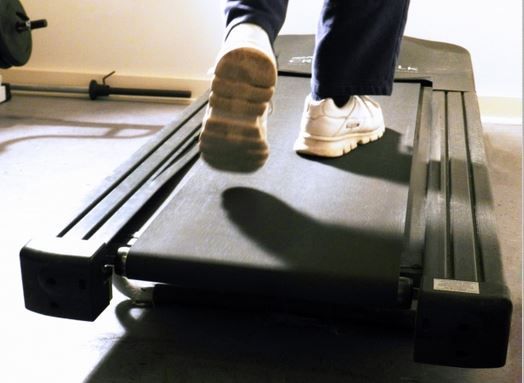Article
In Type 2 Diabetes, Genetics May Blunt Exercise Response
Author(s):
A new study suggests that up to 1 in 5 patients with diabetes might be genetically programmed to derive little or no benefit from increased physical activity.

As many as 1 in 5 patients with type 2 diabetes mellitus (T2DM) have a blunted metabolic response to exercise, according to a new study that set out to investigate the underlying mechanisms that might predict this “programmed response to fail.”
Despite the known favorable effects of exercise, training does not benefit all individuals with T2DM. Some people appear to derive less metabolic benefit from exercise training. “We and others have found that approximately 15% to 20% of individuals fail to improve their glucose homeostasis, insulin sensitivity, and muscle mitochondrial density after supervised exercise training interventions,” state researchers at Translational Research Institute for Metabolism and Diabetes, Florida Hospital, Orlando, FL.
“Since obesity and lack of physical activity are 2 key risk factors for T2DM, physicians frequently recommend exercise and other lifestyle interventions to prevent or manage the disease,” said senior author Lauren Marie Sparks, PhD, who is also from the Diabetes and Obesity Research Center, Sanford-Burnham Medical Research Institute, in Orlando. “Most people benefit from an exercise regimen, but our research indicates that a significant minority of individuals with T2DM do not experience the same improvements in metabolism due to their genes.”
The researchers conducted a systematic review of classic and contemporary primary reports on clinical human and animal exercise studies. They also referenced unpublished data from their own previous studies, as well those of collaborators, and examined the association of genetic and epigenetic components with response to exercise.
They found that up to 1 in 5 individuals with T2DM did not see any improvement in their blood sugar control, insulin sensitivity, or muscle mitochondrial density, which is a measurement of fat-burning capabilities.
The researchers note that the extent of the exercise training response is largely heritable. “New evidence demonstrates that DNA hypomethylation is linked to the exercise response in skeletal muscle. DNA sequence variation and/or epigenetic modifications may, therefore, dictate the exercise training response,” they state.
More research is needed to determine which people with or at risk of developing T2DM will respond to an exercise program. Genetic and epigenetic patterns could hold the key. “With that information in hand, we can target specific interventions and treatments to the individuals who will benefit most and identify novel treatment approaches to help those who do not respond to exercise,” said Sparks.
Although it is important to understand and identify responders to exercise, “it is equally critical to identify non-responders so that we may discover approaches that release the ‘brakes’ that prevent some individuals from reaping the metabolic rewards of their exercise training efforts,” they state. “These findings will advance the field of exercise and T2DM and could potentially shift the paradigm, allowing interventions to be targeted to those most likely to benefit and identify novel approaches to treat those who do not.”
The researchers published their results online on October 15, 2014 in the Journal of Clinical Endocrinology & Metabolism.
References:
Stephens NA, Sparks LM. Resistance to the beneficial effects of exercise in type 2 diabetes: are some individuals programmed to fail? J Clin Endocrinol Metab. 2014. http://press.endocrine.org/doi/pdf/10.1210/jc.2014-2545





